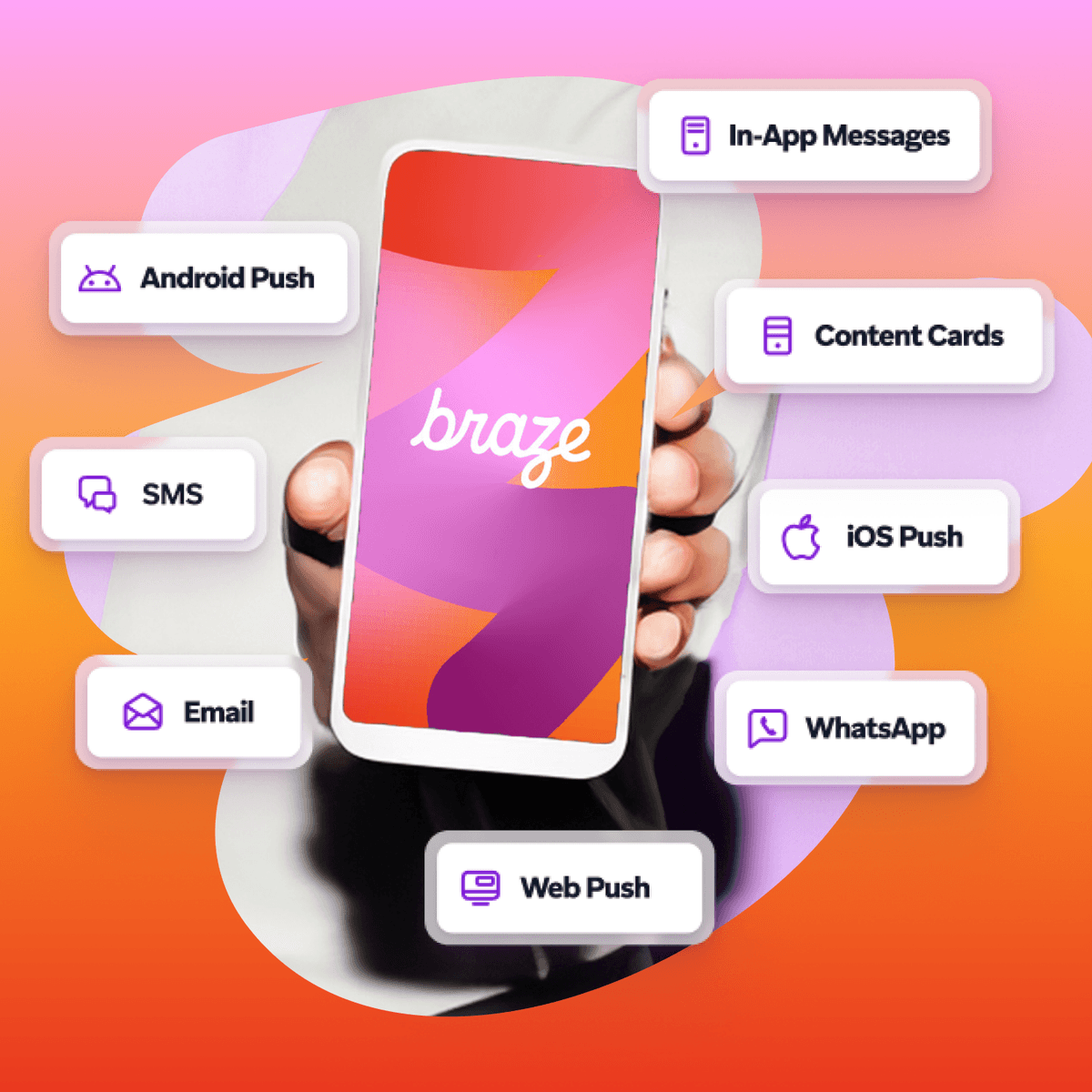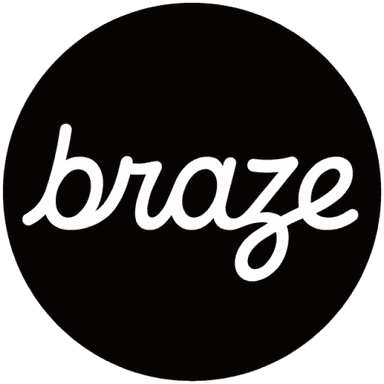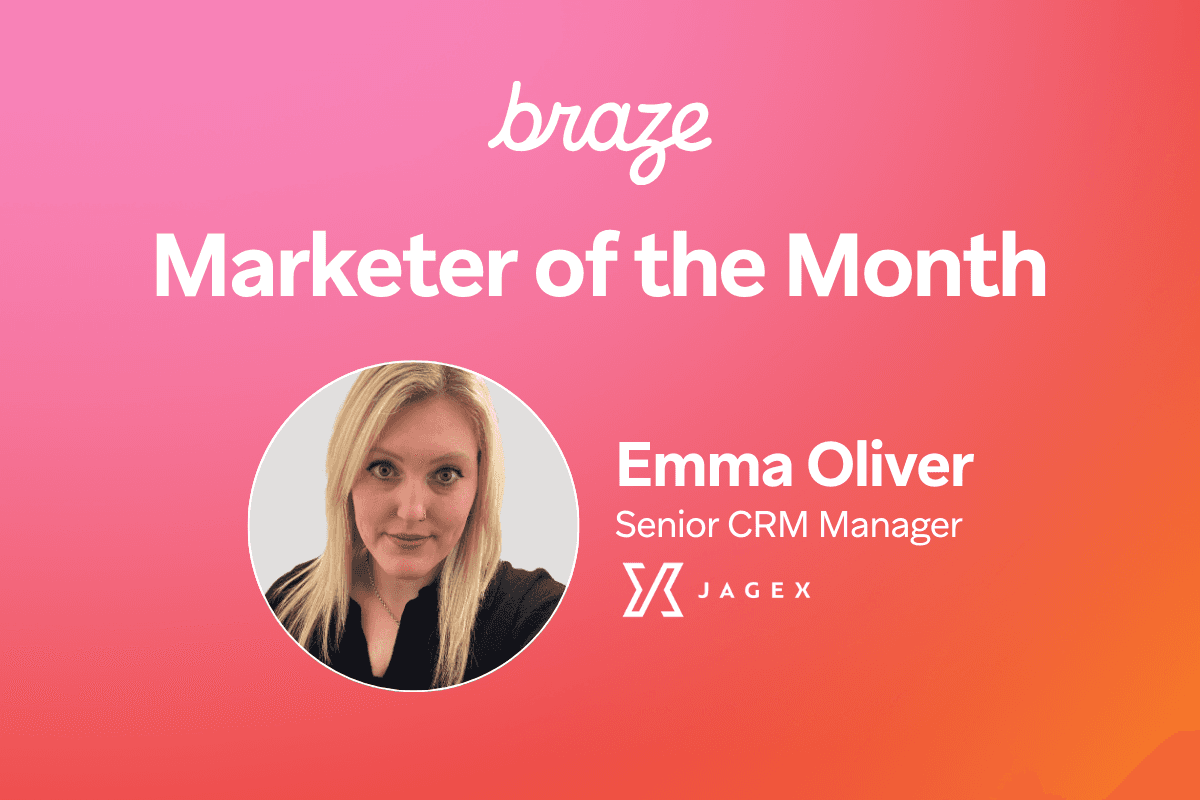Cross-Channel Communication and Customer Engagement is Evolving, So Should Your Brand
Published on May 31, 2024/Last edited on May 31, 2024/6 min read


Team Braze
The Braze 2024 Global Customer Engagement Review takes an annual pulse of the profession, uncovering trends and best practices in customer engagement. And this year’s survey reveals that cross-channel preferences are rapidly evolving, with messaging platforms like WhatsApp and Line overtaking email as marketers’ most-cited channel for customer communication.
At first glance, this shift in focus is a little surprising—after all, established channels like email and push notifications have proved their worth in years of marketing campaigns. However, once you dig into the numbers a bit deeper, it’s not hard to see reasons that might be influencing this change. For one thing, using WhatsApp can deliver a 70% longer user lifetime, while combining it with other channels can boost retention even higher (81% for WhatsApp and email, 86% for WhatsApp and email and Content Cards).
Braze research also finds that—in a world where the number of digital platforms and channels keeps rising—creating a consistent cross-channel experience is one of the most important things a brand can do. In fact, high-performing brands aren’t just 12% more likely to use 3+ channels. They’re also seeing 73% more purchases per user, 59% more sessions per user, and 30% higher 90-day retention rates compared to their lower-performing peers.
However, only half of respondents reported “sufficient consistency” in their messaging efforts, and just 37% said consistency in the customer experience was a top priority. This represents a major opportunity for brands to raise the bar and reap significant business benefits.
Based on the findings from our extensive 2024 Global Customer Engagement Review, here’s how to evolve your cross-channel customer experience, drawing on best practices from exceptionally engaging brands.
Top marketers leverage multiple traditional channels
You don’t need us to tell you cross-channel communication is critical. Only 17% of surveyed brands still rely primarily on a single communication channel. Most marketers are engaging customers across multiple platforms. Our survey found many are using—or planning to use—a mix of established channels to reach customers more effectively.
- Email: 45%
- Mobile and web push: 43%
- Targeted app or web content: 41%
- In-app/in-browser messaging: 40%
However, different channel combos impact customer engagement in different ways, so experimenting to find the ideal mix can bolster your marketing results.
See stronger engagement with the right channel mix
Our analysis found that combining in-app messages with mobile push notifications, email, and web push was associated with the strongest results for average sessions per user, a key engagement metric. This combo saw nearly 126X higher results, compared to individuals who received no messages.
The adoption of emerging platforms is key
Interestingly, new opportunities are also rising to the fore this year. Messaging apps now top the charts, with 47% of marketers including apps like WhatsApp, Line, and KakaoTalk in their engagement strategy.
- Messaging apps: 47%
- Email: 45%
- Mobile and web push: 43%
- Targeted app or web content: 41%
- Paid media powered by first-party data: 41%
- In-app/in-browser messaging: 40%
Messaging apps are a way for brands to bypass the increasing noise associated with customers’ email inboxes—and to deliver highly personalized messaging that feels more like it comes from a friend than a business. It’s a savvy move, as customers who receive brand messages on WhatsApp have longer user lifetimes than those messaged only on other channels. Furthermore, combining WhatsApp with other messaging channels drove even higher engagement.
- 20.7X higher average user lifetime for WhatsApp recipients, compared to users who received no messages
- 72% higher average user lifetime for WhatsApp recipients, compared to users who received channel combinations that didn’t include WhatsApp
Paid media powered by first-party data is another new approach being successfully paired with traditional channels. First-party data—the data you collect about users’ interactions with your digital channels—can identify users with intent. (Think intent to buy, intent to lapse, etc.)
Leveraging this data for highly targeted activation and retention campaigns can increase revenue and reduce churn. Predictive AI is especially useful here, identifying behaviors that indicate intent and segmenting your audience on this basis.
But manual processes are holding back marketers’ efforts
While brands see stronger engagement metrics when using multiple channels, the fact is that many marketers are still hampered by manual processes when they try to take advantage of this impactful approach. Despite marketers’ best efforts to create cohesive cross-channel experiences, most lack the tools to deliver their ambitions.
Among respondents with a cross-channel strategy:
- Only 30% have a dedicated customer engagement platform to automate and simplify the process
- 33% depend on multiple, siloed point solutions to manually piece together a multi-channel experience
This gap puts brands at a disadvantage because it:
- Increases the burden on overstretched marketers, limiting creativity, agility, and experimentation
- Artificially caps how many channels you can realistically add to your mix
- Limits the extent to which you can personalize customer experiences
Why does consistent cross-channel messaging matter? Ask your bottom line
Using a combination of both in-product channels (like in-app messages) with out-of-product ones (like push) can result in
- 25% more purchases per user than using just out-of-product messages
- 6.5X more purchases per user than using just in-product messages
High-performers leverage tech to ace engagement
Our survey found that top-performing Ace brands are
- 12% more likely to engage with customers across 3+ channels
- 73% more likely to carry out sophisticated message personalization
- 112% more likely to segment users with real-time data
To do this effectively brands need a customer engagement platform (CEP). A CEP accelerates and automates cross-channel strategy through:
- Consolidating and live-streaming data from disparate sources
- Orchestrating automated, at-scale cross-channel messaging
- AI-powered segmentation, predictive analysis, and A/B testing
With the right customer engagement solution, ambitious marketers can realize a seamless, cross-channel strategy—powered by live data and tailored to every customer.
Final Thoughts
As channels continue to expand and customers’ communication preferences evolve, it’s clear that having a robust and adaptive customer engagement platform at your disposal can only accelerate your success. The key is adaptivity, both on a brand and technology level. Those who see the biggest gains will be those proactively spotting opportunities in emerging channels and developments like AI while continually keeping their finger firmly on the pulse of customer wants and needs.
Want to learn about strategies for effective customer activation? Download Acquisition in Action: Attracting New Customers and Keeping Them Engaged.
Master the top trends in customer engagement
Download the 2024 Global Customer Engagement Review for:
- The top three trends in customer engagement right now
- How top brands ace customer engagement for better business outcomes
- Benchmarks and case studies by industry
Related Tags
Be Absolutely Engaging.™
Sign up for regular updates from Braze.
Related Content
View the Blog
The new inbox reality: How iOS changes are reshaping email marketing

Aparna Prasad

Experience optimization: Turning data insights into better journeys

Team Braze

December 2025 Bonfire Marketer of the Month: Jagex’s Emma Oliver
